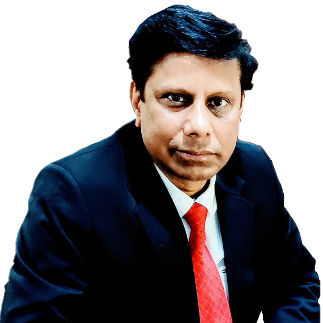Guide to Guide For Children Well Being
This guide provides parents, educators, and caregivers with practical advice and resources to support the physical, emotional, and social well-being of children. Learn how to foster resilience, happiness, and healthy development in kids of all ages.


Introduction
Navigating the journey of parenthood is one of life's most rewarding yet complex adventures. At the heart of this journey is a universal desire: to ensure our children's holistic wellbeing. But what does "wellbeing" truly encompass? It's more than just physical health; it's a vibrant tapestry woven from emotional stability, social skills, mental resilience, and spiritual grounding. This definitive guide is designed to walk you through each critical facet of your child's development. We'll move beyond basic advice to provide a structured, evidence-based framework for fostering an environment where your child can truly thrive. From nutritional building blocks and sleep hygiene to nurturing emotional intelligence and digital literacy, this article will serve as your trusted companion in raising a happy, healthy, and resilient individual. Let's embark on this essential guide to securing your child's brightest future.
Understanding the Pillars of Child WellBeing
A child's wellbeing isn't a single entity but a structure supported by several core pillars. Think of it as a table: if one leg is shorter or weaker, the entire structure becomes unstable. These pillars are deeply interconnected. For instance, a child who is struggling emotionally may have trouble sleeping (physical health) or making friends (social health). Conversely, a child with a nutritious diet and regular exercise often has a more stable mood and better focus. This holistic approach ensures we are nurturing the whole child—not just treating symptoms or focusing on a single area of development. A comprehensive child development guide always considers these facets together.
Physical Health: The Foundation of Growth
The physical pillar is the most visible aspect of wellbeing and forms the essential foundation for all others. It encompasses nutrition, activity, sleep, and preventive care.
Consult a General Physician for the best advice
Nutrition and Diet: Building Blocks for a Healthy Body
- A balanced diet provides the energy and nutrients necessary for rapid growth and brain development. Focus on a variety of whole foods: fruits, vegetables, whole grains, lean proteins, and healthy fats. The goal is to establish a positive relationship with food. Involve children in meal planning and preparation to make them excited about healthy choices. Remember, hydration is equally crucial; water should be the primary drink for children.
The Critical Role of Sleep and Rest
- Sleep is when a child's body and brain recharge. It's vital for memory consolidation, growth hormone release, and emotional regulation. The American Academy of Pediatrics recommends 912 hours of sleep for school-aged children and 810 hours for teenagers. Establish a consistent, calming bedtime routine free from screens to signal to their body that it's time to wind down. Quality sleep is a nonnegotiable component of children's health tips.
Importance of Regular Physical Activity
- Exercise strengthens bones and muscles, helps maintain a healthy weight, and improves cardiovascular fitness. Beyond the physical benefits, it boosts mood and reduces anxiety. Aim for at least 60 minutes of moderate to vigorous activity daily. This doesn't have to be structured sports; it can be dancing, playing tag, or a family bike ride.
Preventive Healthcare: Vaccinations and Checkups
- Regular wellness visits with a pediatrician are crucial for monitoring growth, tracking developmental milestones, and administering scheduled vaccinations. These appointments are your opportunity to discuss any concerns. If you notice persistent issues like fatigue, frequent headaches, or digestive problems, consult a doctor online with Apollo24|7 for a preliminary evaluation and to determine if a physical visit is needed. For routine monitoring, Apollo24|7 offers convenient home collection for tests like vitamin D or HbA1c, making preventive care easier for busy families.
Emotional and Mental WellBeing: Nurturing the Inner Child
A child's emotional world is rich and complex. Teaching them to navigate it is one of the most valuable skills you can impart.
Fostering Emotional Intelligence and Resilience
- Emotional Intelligence (EQ) is the ability to understand, use, and manage emotions positively. Teach your child to name their feelings ("It looks like you're feeling frustrated"). Validate their emotions ("It's okay to feel angry, but it's not okay to hit"). This builds resilience—the ability to bounce back from setbacks. Model resilient behavior by talking about your own challenges and how you overcome them.
Creating a Safe and Supportive Home Environment
- Home should be a safe harbor. Children need to know they are loved unconditionally and can express themselves without fear of judgment. Use positive reinforcement, celebrate effort rather than just outcomes, and ensure your home is a place of open communication. This secure base gives them the confidence to explore the outside world.
Identifying and Addressing Anxiety and Stress in Children
- Children experience stress too, often manifesting as clinginess, headaches, stomachaches, or behavioral regression. Create open dialogues about their worries. Teach simple coping strategies like deep breathing ("let's blow up an imaginary balloon") or mindfulness. If anxiety is severe, persistent, and interfering with daily life, seeking professional help from a child psychologist is critical. Early intervention can provide them with tools for a lifetime.
Social Development and Healthy Relationships
Humans are social beings, and learning to interact with others is a fundamental part of childhood.
Encouraging Positive Peer Interactions and Friendships
- Friendships teach cooperation, negotiation, and empathy. Facilitate opportunities for socializing through playdates, clubs, and group activities. Coach them on social skills like sharing, taking turns, and being a good listener. Discuss what it means to be a good friend and how to handle conflicts respectfully.
The Role of Family in Social Learning
- The family is a child's first social circle. Model healthy relationships with your partner, friends, and family members. Establish traditions, eat meals together, and practice active listening. Through these interactions, children learn about communication, trust, and mutual respect—the blueprints for all future relationships.
Cognitive Development and Academic Support
A child’s brain is constantly developing, and their environment plays a huge role in shaping it.
Stimulating Learning at Different Ages
- Cognitive development isn't just about academics. It's about fostering curiosity. For young children, this means reading aloud, puzzles, and imaginative play. For older children, engage in discussions about current events, visit museums, and encourage hobbies. Support their natural interests rather than forcing a predetermined path.
Balancing Screen Time with Creative Play
- Screens are a part of modern life, but balance is essential. Prioritize educational and interactive content over passive consumption. Enforce clear limits and ensure plenty of time for unstructured, creative play. This is where problemsolving, innovation, and independent thinking truly flourish. Establishing healthy parenting strategies for wellbeing includes managing the digital environment.
The Importance of Play and Unstructured Time
Play is the language of children. It is how they process their world, develop skills, and express themselves.
How Play Contributes to Overall Development?
- Through play, children develop physically, cognitively, and socially. A simple game of building blocks enhances fine motor skills, spatial awareness, and patience. Dramatic play (like pretending to run a restaurant) builds language, social understanding, and empathy. It is far from a frivolous activity; it is essential work.
Ideas for Educational and Fun Activities
Incorporate learning into play naturally.
- Outdoor: Nature scavenger hunts, gardening, building a fort.
- Indoor: Board games, science experiments (baking soda volcanoes!), arts and crafts with recycled materials.
The key is to let the child lead the play, fostering independence and creativity.
Conclusion: Your Journey as a WellBeing Advocate
Your child's wellbeing is a continuous journey, not a final destination. This guide has provided a map, highlighting the essential territories of physical health, emotional depth, social connection, and cognitive growth. Remember, there is no such thing as a perfect parent. The goal is to be present, intentional, and compassionate—toward your child and yourself. You are your child's most important advocate and role model. By creating a nurturing environment, attending to their holistic needs, and seeking support when needed, you are laying the groundwork for them to become thriving, capable, and happy adults. Start today by choosing one area from this guide to focus on, and build from there.
Consult a General Physician
Consult a General Physician

Dr. Vivek D
General Physician
4 Years • MBBS
Bengaluru
PRESTIGE SHANTHINIKETAN - SOCIETY CLINIC, Bengaluru

Dr. Dhanraj K
General Physician/ Internal Medicine Specialist
25 Years • MBBS, MD Internal Medicine - Osmania Medical College, Hyderabad
Hyderabad
Apollo Hospitals Jubilee Hills, Hyderabad
(400+ Patients)

Dr. Anand Ravi
General Physician
2 Years • MBBS
Bengaluru
PRESTIGE SHANTHINIKETAN - SOCIETY CLINIC, Bengaluru

Dr Syed Mateen Pasha
General Physician
2 Years • MBBS
Bengaluru
PRESTIGE SHANTHINIKETAN - SOCIETY CLINIC, Bengaluru

Dr. Ajay K Sinha
General Physician/ Internal Medicine Specialist
30 Years • MD, Internal Medicine
Delhi
Apollo Hospitals Indraprastha, Delhi
(200+ Patients)
Consult a General Physician for the best advice

Dr. Vivek D
General Physician
4 Years • MBBS
Bengaluru
PRESTIGE SHANTHINIKETAN - SOCIETY CLINIC, Bengaluru

Dr. Dhanraj K
General Physician/ Internal Medicine Specialist
25 Years • MBBS, MD Internal Medicine - Osmania Medical College, Hyderabad
Hyderabad
Apollo Hospitals Jubilee Hills, Hyderabad
(400+ Patients)

Dr. Anand Ravi
General Physician
2 Years • MBBS
Bengaluru
PRESTIGE SHANTHINIKETAN - SOCIETY CLINIC, Bengaluru

Dr Syed Mateen Pasha
General Physician
2 Years • MBBS
Bengaluru
PRESTIGE SHANTHINIKETAN - SOCIETY CLINIC, Bengaluru

Dr. Ajay K Sinha
General Physician/ Internal Medicine Specialist
30 Years • MD, Internal Medicine
Delhi
Apollo Hospitals Indraprastha, Delhi
(200+ Patients)
More articles from General Medical Consultation
Frequently Asked Questions
What are the first signs that my child's wellbeing might be struggling?
Look for significant changes in behavior, such as increased irritability, social withdrawal, changes in eating or sleeping patterns, a sudden drop in academic performance, or a loss of interest in activities they once enjoyed. Trust your instincts; you know your child best.
How much unstructured play time does my child really need?
There's no magic number, but experts suggest that preschoolers should have several hours a day of unstructured play. For school-aged children, aim for at least an hour of free time after school and homework before diving into structured activities. This is crucial for their healthy child development.
My child is a picky eater. How can I ensure good nutrition?
Stay calm and persistent. Offer a variety of healthy foods without pressuring them to eat. Involve them in grocery shopping and cooking. Often, a 'picky' phase is normal. However, if you're concerned about nutritional deficiencies or extreme selectivity, a consultation with a pediatric nutritionist can be helpful.
How can I talk to my child about their big emotions?
Use age-appropriate language. Name the emotion for them ('You seem really sad that playtime is over'). Validate their feelings ('It's okay to feel sad about that'). Offer comfort and, once they are calm, discuss better ways to express that emotion next time.
When should I be concerned about my child's mental health and seek professional help?
Seek help if your child's emotional or behavioral issues are intense, persist for weeks, interfere with their ability to function at school, at home, or with friends, or if they talk about selfharm or hopelessness. Platforms like Apollo24|7 can connect you with mental health professionals for an initial consultation, providing a convenient first step.



.webp)
_0.webp)